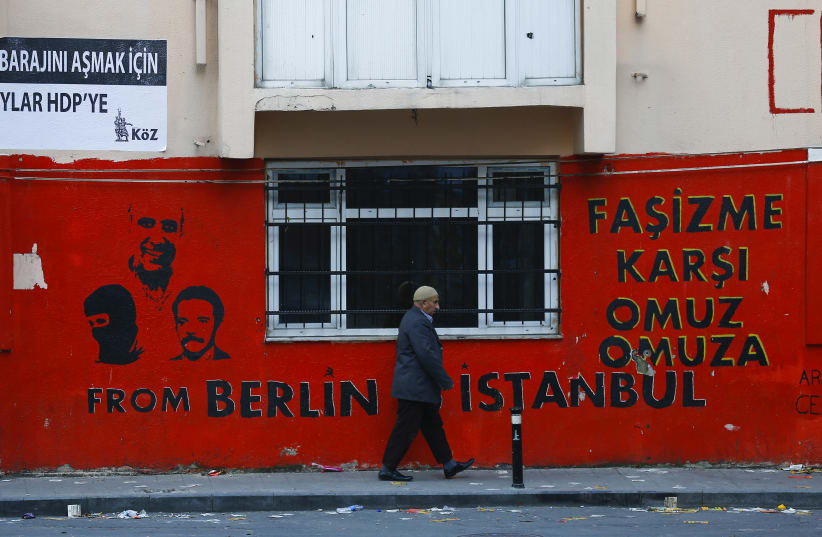"I wondered about this whole business of changing names – not just of streets but of villages, towns and entire districts as well. It must, I thought, be an attempt to erase one version of history and replace it with another.”
Can people, however, live an emotionally fulfilling life without knowing their past? This is one of the issues dealt with by Maya Duran, the protagonist of the acclaimed Turkish author, musicians, and politician Ömer Zülfü Livaneli’s newly translated novel Serenade for Nadia (Other Press, 2020).
Like the city she describes, parts of Maya's personal history have been "erased." Maya's present life is dull and aimless, her relationships are somewhat superficial, and she herself could be considered detached and aloof.
When an elderly German professor visits Istanbul University where she works as the rector's assistant, Maya is assigned with accompanying him during his stay.
"So it looked as if I was going to spend the next three days taking care of a frail old man," she complains. But this frail old man is going to turn Maya's world upside down. It is not only a series of inconceivable events, all taking place within a week, that completely change the course of her life, but also Prof. Maximillian Wagner's personal story, thanks to which their paths crossed.
The professor's tragic past is seemingly unrelated to Maya's life, but on a deeper level, it opens the possibility of reaching an intimacy that Maya has never experienced before.
At first, Maximillian, or Max, keeps his secret. He might be a spy, as he and Maya have been being followed by secret agents since he set foot on Turkish ground. But as Max’s past is made known to Maya, and she learns of Nadia, his beloved deceased wife, the ridiculous idea of him being a spy completely dissolves. Max's past, such as Maya's family’s, contains heart-breaking memories of loved ones who were forced to hide under false identities, victims of violence and wars, who were uprooted or betrayed by their homeland (a kind of secret that can be found under almost every roof in Turkey.)
"There is no point in reopening old wounds," Maya's mother says as she becomes aware of her own family’s secrets, an attitude not altogether unfamiliar to the second- and third-generation of Holocaust survivors. Children are never "old enough" to be able grasp and process such painful family memories, so it is better to "protect" them from it.
As the story unfolds, Livaneli acknowledges that the past may be buried and voices silenced due to governments' agendas, especially under the rise of nationalism. Through Maya, he navigates in space and time from present day Turkey to Nazi Germany as examples of oppressive regimes and goes as far as pointing out similarities between them.
"Since we have been unable to make what is right powerful, we have made power right,” Maya reflects. By dictating to the public which identity, ethnicity and religion are legitimate, the regime robs its citizens of their individuality and connection to an inner source of strength – knowing who they are and where they belong. By the simple act of changing street names, a person's past may become more difficult to trace. Telling people who they should be may turn them into empty figures depending on and obeying the state. Telling them who they cannot be justifies horrific acts of violence against individuals and groups not only in Turkey but all over the world, throughout history.
Livaneli persistently points out how destructive this intention to wipe out local cultures is, and the relentless efforts of certain regimes to create the illusion of national and cultural uniformity at the expense of the individual’s freedom.
He therefore leads his characters into a mission to restore the lost freedom, even when the people who were deprived of it are already dead, and unbury a long-forgotten story of the Struma disaster – a ship that was sunk while carrying Jewish refugees during the Second World War.
“Nadia's story had been buried with her in the dark waters of the Black Sea. But I would raise it and tell the whole world. I felt that this was my sacred duty,” Maya claims as she embraces the identities of three deceased women who were denied the freedom to live in the world as their true selves.
Why is it so important to face and embrace the past when it is filled with atrocities and pain? This is one of the main questions brought up by Livaneli. The answer, however, is complex: Our lives – our emotions, traumas, hopes and stories – are impregnated with the past. Reaching out to painful past events that were not possible to process at the time, perhaps through an encounter with a loving human being, enables us to unleash the pain that is anyhow stored in the memory. And reexperience it.
As painful as it might be, this experience could give one the chance to reconnect with a lost part of oneself and perhaps become whole again. As is evident in Maya's story, reconnecting with past traumas with curiosity and maturity restores emotional well-being and gives life a new meaning and sense of direction.Hilla studied Literature and Linguistics at the Hebrew University and works at an international affairs office. She visits Istanbul often for her studies of Persian and Turkish music.


